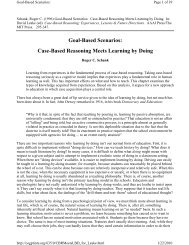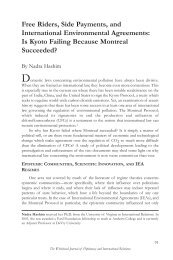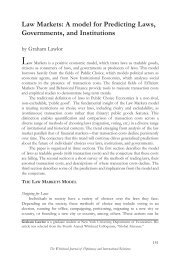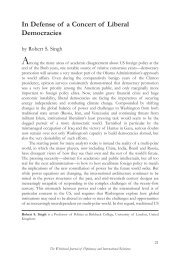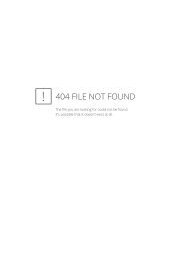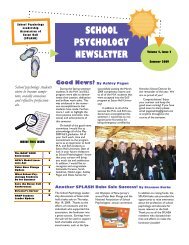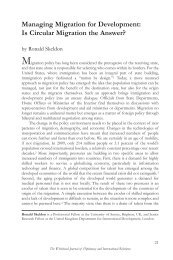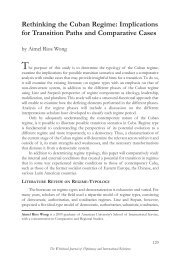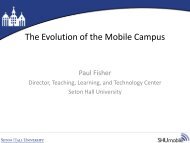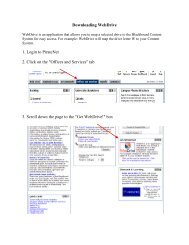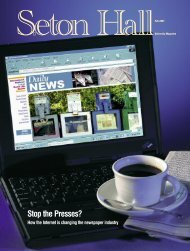Seton Hall Magazine, Winter 2000 - Seton Hall University
Seton Hall Magazine, Winter 2000 - Seton Hall University
Seton Hall Magazine, Winter 2000 - Seton Hall University
Create successful ePaper yourself
Turn your PDF publications into a flip-book with our unique Google optimized e-Paper software.
E c o n o m i c s<br />
Ihave been asked, as an economist,<br />
to write about “money.”<br />
It is typical to think that economists<br />
focus primarily upon<br />
money — its control, uses and<br />
abuses. But anyone who has<br />
taken a course or two in the<br />
subject matter of economics<br />
knows that money plays second<br />
fiddle to the primary concern of<br />
economists — resources.<br />
That is not to say that money<br />
hasn’t had a long and fascinating<br />
history. Nations have risen and<br />
fallen in part due to their ability<br />
or inability to manage money. But<br />
what, exactly, is the nature of<br />
money? When I receive my salary<br />
as a “direct deposit” to my bank<br />
account, is that money? When I use a<br />
phone card, is that using money? When<br />
I pay my credit card company with a<br />
check, is that pale blue piece of paper<br />
the same as money? To answer these<br />
questions one needs to understand the<br />
functions of money.<br />
Money, first of all, serves as a medium<br />
of exchange (i.e., it enables us to buy<br />
and sell goods readily and quickly, thereby<br />
reducing enormously the time that<br />
used to be spent by folks in barter<br />
economies trying to find willing partners<br />
to an exchange). Hence, money in this<br />
role has often been called the lubricant<br />
of an economy, allowing numerous transactions<br />
to flow smoothly day in and day<br />
out. Just as important, though, is<br />
money’s role as a store of value. When<br />
we work and create something useful,<br />
we are said to create value. But we may<br />
not desire to possess much of what we<br />
create and would rather have other<br />
goods and services. So we receive compensation<br />
for our efforts in the form of<br />
money, which represents the value we<br />
have produced. We can hold onto that<br />
money and use it later. Of course, we<br />
could hold onto the goods we initially<br />
created, but over time they might deteri-<br />
26 SETON HALL UNIVERSITY MAGAZINE<br />
The Mystery of Money<br />
BY FRANK D. TINARI, PH.D.<br />
“Once accumulated,<br />
money has no<br />
value in and of<br />
itself. Ask anyone<br />
with a wallet filled<br />
with cash who has<br />
ever been stranded<br />
in the wilderness<br />
what good their<br />
money did them.”<br />
orate or become<br />
obsolete. So<br />
money is a good<br />
substitute and<br />
can even earn<br />
interest for us<br />
while we retain<br />
it. This is not to<br />
say that money<br />
couldn’t lose<br />
value, especially<br />
in times of inflation. But that is another<br />
story for another time.<br />
Money is also pretty nifty in allowing<br />
us to compare values. It serves as a unit<br />
of account, a standard measuring rod,<br />
and enables us to add up the value of<br />
different items we possess. That makes<br />
lots of business and family matters easier<br />
to manage. But sometimes this function<br />
of money becomes warped into a national<br />
policy of collecting and hoarding<br />
money, which was the downfall of the<br />
mercantilist policies of the 18th century.<br />
I suppose one could call this the national<br />
version of the biblical warning that love<br />
of money is the root of evil.<br />
So now we can answer our questions.<br />
Is a check money? Yes. It is acceptable<br />
in exchange for goods, and a checking<br />
account can serve as a store of value,<br />
ready to be used whenever we wish.<br />
But a phone card and a credit card<br />
are not money themselves since one<br />
must use an actual form of money<br />
to pay for their use. Most strange,<br />
however, is direct deposit money<br />
sent in the form of electronic<br />
digits over phone lines. Since I<br />
accept it as compensation for my<br />
work, and since my bank account<br />
is credited with the amount<br />
“sent,” it is real money.<br />
But once accumulated, money<br />
has no value in and of itself. Ask<br />
anyone with a wallet filled with<br />
cash who has ever been stranded<br />
in the wilderness what good their<br />
money did them. For money has<br />
value only insofar as we can acquire<br />
real things with it. That is why we say<br />
that economics is about producing real<br />
wealth with our limited (scarce)<br />
resources, and that money is a mechanism<br />
designed to facilitate attainment of<br />
that primary goal, and not the goal itself.<br />
Nevertheless, there continues to be<br />
concern over money, especially in light<br />
of the coming boom in World Wide Web<br />
transactions, and in the increasing use of<br />
digitized forms of money. Just 20 years<br />
ago, there were fashionable predictions<br />
about the coming “cashless society.”<br />
That hasn’t materialized just yet, but we<br />
are certainly moving in that direction.<br />
It is probably safe to add that, on the<br />
one hand, as long as people lose sight of<br />
money as representing the storage value<br />
of their labor efforts, they will not use it<br />
wisely, and on the other, as long as people<br />
overly emphasize money and lose<br />
sight of the underlying goods and services<br />
it represents, that such love of<br />
money will continue to be a fundamental<br />
root of evil human behavior.<br />
BECKY HEAVNER<br />
Frank D. Tinari, Ph.D., is<br />
a professor of economics in<br />
the Stillman School of Business.




